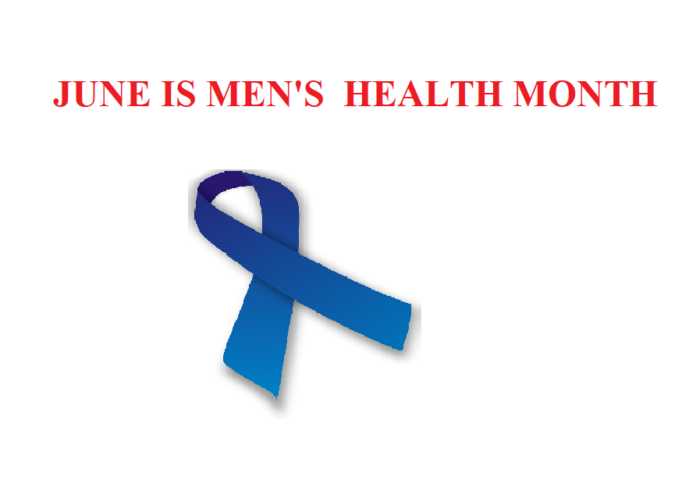June is Men’s Mental Health Month. FixTheLife is pleased to celebrate Men’s Health Month during June. Please refer to the infographic below for some interesting information about men, mental health, and mental illness. According to Mental Health America, men are more likely to die by suicide than women, with rates being approximately four times higher. In recognition of this issue, June is designated as Men’s Mental Health Awareness Month in order to address the specific challenges and barriers that men face when it comes to mental health.
These challenges can include cultural expectations for men to “man up” said by Chris Mason a board member of National Alliance on Mental Illness and suppress their emotions, financial pressure to provide for their families, and trauma from work or military experiences.
Additionally, men may have a genetic predisposition to mental health issues. It is important to recognize and address these issues in order to support the mental well-being of men.
Men’s Mental Health Month
June is considered as the Men’s Mental Health Month. Mental health is an incredibly important aspect of an individual’s well-being.
Mental health problems such as depression or anxiety can have a huge impact on an individual’s ability to lead a fulfilling life.
It is essential, therefore, that the mental health needs of individuals are taken into consideration and appropriate support given when needed.
Factors such as stress levels and lack of positive relationships can significantly increase the risk of mental health problems. It is important to ensure people are connected with supportive networks who can recognize if they need help.
Only by addressing mental health issues can we ensure that individuals receive the support they need and make progress in living healthier lives.
COVID-19 and your mental health
The pandemic has left physical and mental health effects that still linger today. To facilitate adequate mental health responses, Walmart covid testing is a service being widely utilized.
Specifically, Walmart covid testing provides free drive-thru testing at select Walmarts to aid in understanding the scope of the virus’s spread.
Consequently, Walmart covid testing has become an important part of the process for taking preventative steps to maintain our mental and physical health, in addition to procedures such as wearing masks and practicing social distancing.
Thus Walmart’s covid testing not only addresses potential exposure risks but also serves as a way to manage overall stress levels caused by ongoing public health uncertainties.
ALSO READ: What are Walmart Pharmacy Hours?
How COVID-19 Can Impact Mental Health
The current pandemic has highlighted just how substantial the burden of mental health can be in uncertain times. As communities and individuals worldwide face constant disruption to life as they know it, we are seeing a rising need for mental health services, resources, and support.
COVID-19 has had a significant adverse effect on mental well-being due to its far-reaching implications. People must manage job insecurity, financial worries, loneliness, stress, and anxiety – all of which have direct consequences on psychological functioning.
In some cases, this can manifest in severe psychological distress resulting in clinical disorders such as depression and suicide ideation.
It is more important than ever to put healthy practices into places, such as mindfulness or journaling, that may help with mood stabilization and improved regulatory support.
Assessing one’s needs from professionals and peers alike is critical for managing mental well-being in this unprecedented time.
Men’s Mental Health Awareness Month
National Men’s Mental Health Awareness Month is a campaign that takes place each November to raise awareness about the mental health challenges that men may face and to encourage men to seek help when needed. The campaign’s goal is to destigmatize mental health issues and promote the importance of seeking treatment.
During Men’s Mental Health Awareness Month, organizations and individuals may engage in various activities to raise awareness about mental health issues in men, such as hosting events, sharing information and resources on social media, and providing support to men seeking help.
It is important to recognize that mental health issues can affect anyone, regardless of gender, and that seeking help is a sign of strength rather than weakness.
If you or someone you know is struggling with mental health issues, it is important to seek help from a healthcare provider or mental health professional.
Statics and Data of Men’s Mental Health
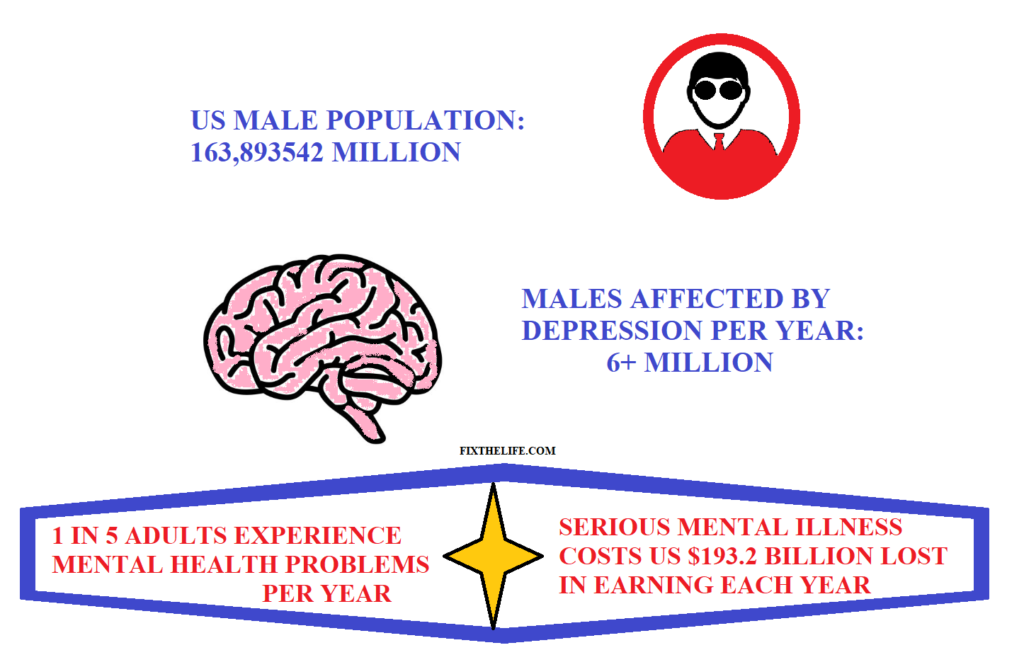
5 Major Mental Health Problems Affecting Men
- DEPRESSION
- ANXIETY
- BIPOLAR DISORDER
- EATING DISORDERS
- PSYCHOSIS AND SCHIZOPHRENIA
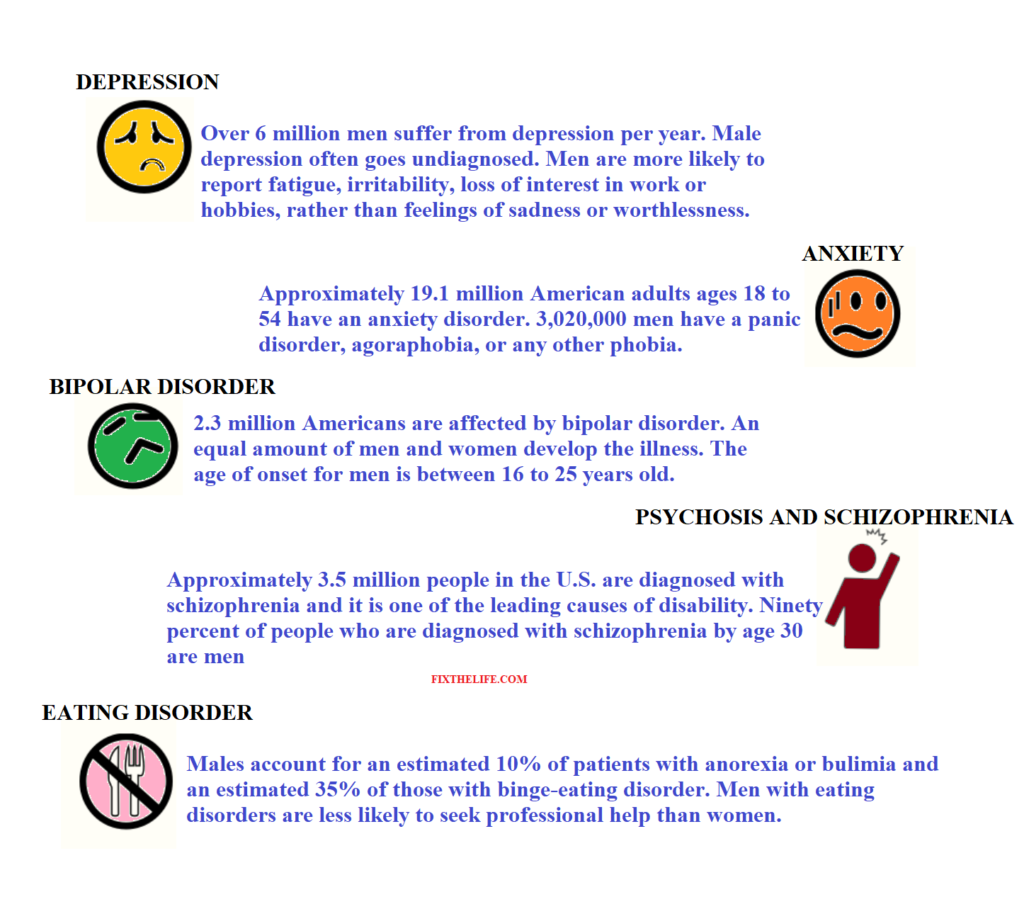
ALSO READ: How To Treat Sleep Disorder Or Insomnia?
Men’s Suicide Facts
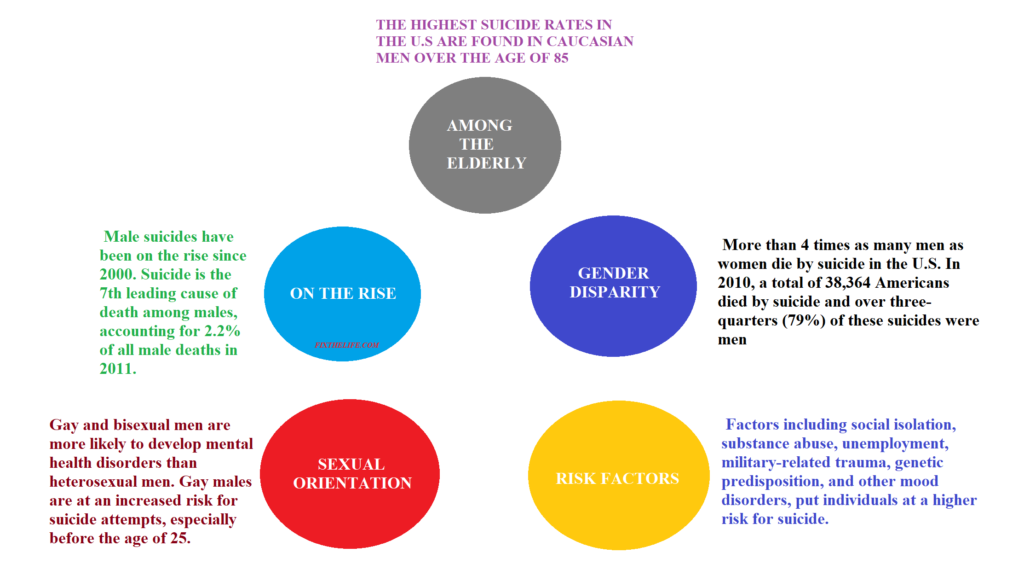
Men’s Health Substance Abuse Stats
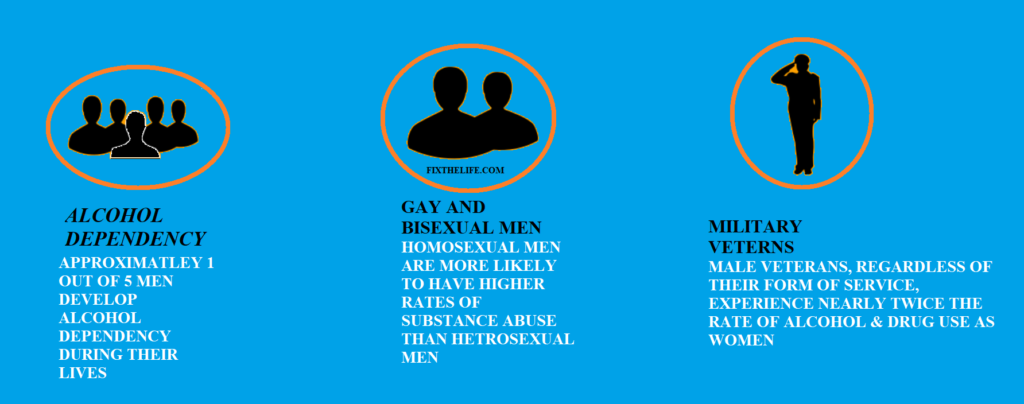
Famous Athletes Who Suffered From Mental Illness
Terry Bradshaw: The former Pittsburgh Steelers quarterback suffered frequent panic attacks after games. He was diagnosed with clinical depression in the late 1990s.
Brandon Marshall: During his time as wide receiver for the Miami Dolphins, Marshall announced his diagnosis of Borderline Personality Disorder (BPD). He spent three months of intensive treatment at McLean Hospital in Belmont, Massachusetts, where he used Dialectical Behavioral Therapy to work on emotional regulation.
Larry Sanders: Sanders, the center for the Milwaukee Bucks, left the NBA to spend time addressing his mental health issues, which include anxiety and depression.
Jim Piersall: Piersall played 20 years of professional baseball. During his rookie season in 1952, he suffered a breakdown, leading to a diagnosis of bipolar disorder, then called manic depression.
Keyoon Dooling: NBA player Dooling’s 2012 breakdown was his lowest point and prompted his recovery process. He suffers from Post Traumatic Stress Disorder from years of repressed memories of sexual abuse as a child. Since leaving the NBA, he has become an advocate for sexual abuse victims.
Earl Campbell: In 1989, Campbell, former football pro and Hall of Fame running back, was diagnosed with panic and anxiety disorder. He reveals his struggles with mental illness in his autobiography which was published in 1999.
The Science Behind Male Mental Health
Testosterone is a hormone that is primarily produced in the testicles of men and the ovaries of women. It is responsible for developing male characteristics such as facial hair, a deeper voice, and increased muscle mass. Testosterone also plays a role in regulating mood, energy levels, and cognitive function.
Low levels of testosterone, also known as hypogonadism or low T, can lead to several physical and emotional symptoms. One of the most common psychological symptoms of low testosterone is anxiety and depression.
There is a complex relationship between testosterone and mood. Testosterone has been shown to affect the production and release of certain neurotransmitters, such as serotonin and dopamine, which are known to regulate mood.
Low testosterone levels may disrupt the balance of these neurotransmitters, leading to anxiety and depression.
In addition to its effect on neurotransmitter production, testosterone may also directly affect the brain’s structure and function.
For example, some studies have found that low testosterone is associated with a reduction in the size of certain areas of the brain, such as the amygdala and the hippocampus, which are involved in emotion and memory.
This reduction in brain size may contribute to the development of anxiety and depression in men with low testosterone.
The relationship between testosterone and mood is not fully understood, and more research is needed to determine the exact mechanisms by which testosterone influences mood.
However, it is clear that testosterone plays a significant role in regulating mood, and low testosterone levels can lead to anxiety and depression.
If you are experiencing symptoms of low testosterone, such as anxiety, depression, or low energy levels, it is important to speak with a healthcare provider. Treatment options for low T may include testosterone replacement therapy, which can help restore testosterone levels and improve mood and other symptoms.
It is also important to note that anxiety and depression are complex conditions that various factors can cause.
Testosterone levels may be just one of many contributing factors, and it is important to address all potential causes in order to manage these conditions effectively.
In conclusion, low testosterone levels can contribute to the development of anxiety and depression in men. If you are experiencing symptoms of low testosterone or anxiety and depression, it is important to speak with a healthcare provider to determine the best course of treatment.
Getting Treatment
Many resources are available to help individuals struggling with mental health issues, including local job services, employment offices, and state health and welfare offices.
These organizations can assist with finding employment or housing. You can find information about these services in the phone book or online.
Additionally, your doctor or a local church may be able to connect you with helpful resources, and your mental health care team may offer programs that can provide training and support for getting and keeping a job.
If you have a substance use disorder, common among those with mental health problems, it is important to speak with your doctor about getting treatment for drug or alcohol addiction.
It is also important to address any behaviors that may harm yourself or others, such as losing your temper or engaging in criminal activity.
If you or a loved one is in jail and has a mental health issue, ensure the staff members are aware of the problem and seek out available support services upon release.
Victims of crime are more likely to have mental health issues, so if you or a loved one has been a victim, reach out to a trusted family member, friend, or healthcare professional for help.
ALSO READ: WRAP YOUR FEET IN ALUMINIUM FOIL & WAIT FOR AN HOUR: WHAT HAPPENS NEXT WILL SURPRISE YOU.
Legal Concerns with Mental Health
Like all citizens, individuals with mental health issues have the same rights, such as the right to vote and participate in legal agreements, such as marriage and business ventures.
Many states and healthcare organizations have a bill of rights that protects the rights of individuals with mental health problems, including the right to privacy concerning their illness and treatment plan and the right to treatment that minimizes restrictions on their lifestyle.
It can be challenging for individuals with mental health issues to make decisions due to their symptoms. It is a good idea to prepare legal documents in advance to help in case of difficulties in making decisions. It is best to do this when symptoms are minimal or absent.
Frequently Asked Questions
Q: When is Men’s Mental Health Month?
ANS: June is considered the Men’s mental health month.
Q: What month is men’s mental health month?
ANS: June is considered the Men’s mental health month.
Q: What is Men’s Mental Health Awareness Month?
ANS: Each November, National Men’s Health Awareness Month raises awareness and provides support for men facing various health issues, such as prostate cancer, testicular cancer, and mental health challenges. During this month, organizations like Movember and No-Shave November work to promote men’s health and create a defense against these issues. This year, National Men’s Health Awareness Month falls on November 11, 2021.
Q: What color is men’s Mental Health Month?
ANS: “Wear Blue Day” is a campaign that can be organized to raise awareness about Men’s Health Month and the importance of male health. Research shows that men generally face more health issues and have a shorter lifespan compared to women. Wear Blue Day was created by Men’s Health Network as a way to encourage men to prioritize their health and live longer, healthier lives.
Q: When Did Men’s Mental Health Month Start?
ANS: Men’s Health Month, which takes place each June, is an important time to raise awareness about the importance of men’s mental health. Since 1994, this month has been recognized as an opportunity for men to learn about preventable diseases, seek medical advice, and get regular physicals.
It is important to encourage the men in your life to prioritize their mental health and take steps to maintain their overall well-being. This can include seeking support from healthcare professionals, engaging in self-care practices, and participating in activities that promote mental and emotional well-being. Discussing men’s mental health and providing resources and support, we can help men to lead happier, healthier lives.
Q: When is Men’s mental health Month 2023?
ANS: Men’s Health Week: June 12-18, 2023.
ALSO READ: Bulimia Nervosa: Causes, Symptoms, Diagnosis And More

